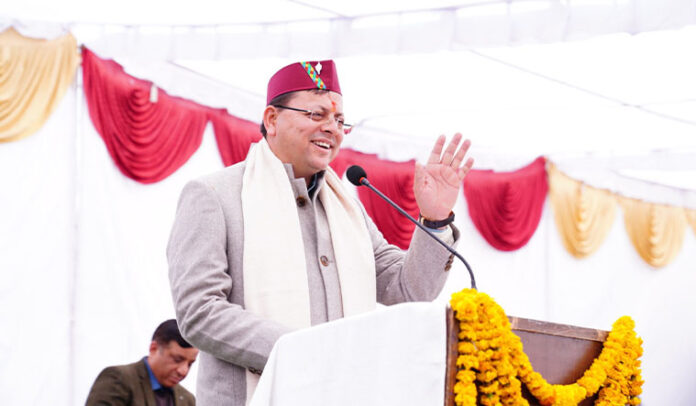Dehradun, Feb 8
The Uniform Civil Code (UCC) bill passed by the Uttarakhand Vidhan Sabha went through 2.72 lakh suggestions received at various public hearings, CM Pushkar Singh Dhami said Wednesday.
“This is a dream which will now turn into reality and its start has been made from Uttarakhand”, said Dhami in the Assembly. “It will present an example for other states in India.”
The committee formed to write a detailed report on the UCC took almost two years to complete the job. The state government received the same on February 2 and it was tabled three days later in the House.
CM Dhami said that the bill would protect mothers, sisters and daughters in the true sense. “The Shah Bano case and many others in which wrong was done to women…they were denied justice…now all that will end”, said the CM while thanking all the members of the Assembly for the detailed discussions.
Arguably the most intensely debated bill of Uttarakhand, it even led to the suspension of the Assembly Question Hour.
Dhami also commented on the proposed need to register live-in relationships — one of the bill’s most widely cited provisions. According to the BJP leader, the UCC would ensure the safety of children born outside marriage, live-in relationships, adopted or born through artificial insemination. “Everyone will be treated equally and will get equal rights in parental property”, he said.
“It will provide equal rights to all without any discrimination and will ensure everyone’s progress”, the chief minister added.
“UCC will not only ensure all constitutional rights for the people of Uttarakhand but will also ensure that they are fully implemented and are safeguarded legally. It will end all ill practices across various communities and will ensure legal and social justice to all those suffering from them”, he said.
The tribals of Uttarakhand have been kept out of UCC to ensure their Constitutional rights are not violated. The draft forming committee visited Chakrata, Dharchula, Nanakmatta, Sitarganj, and other areas resided by tribal communities during its study of the bill.



























